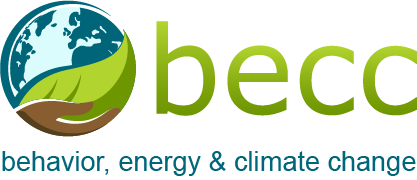BECC Sponsored Webinars
The BECC Webinar Series brings attention to cutting-edge advances in research and practice addressing behavior, energy, and climate change. We showcase the best BECC-related content and world leaders in the field to keep the conversation going between conferences and throughout the year. For those who cannot attend BECC, the sessions provide an opportunity to learn and share ideas. For those who can attend, the series gives a preview of conference topics. Our mission is to promote and disseminate behavior research as it applies to real-world climate and energy issues. Enjoy!
